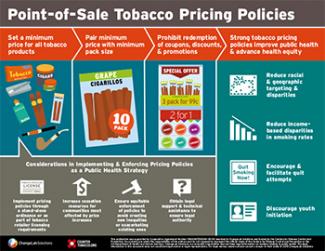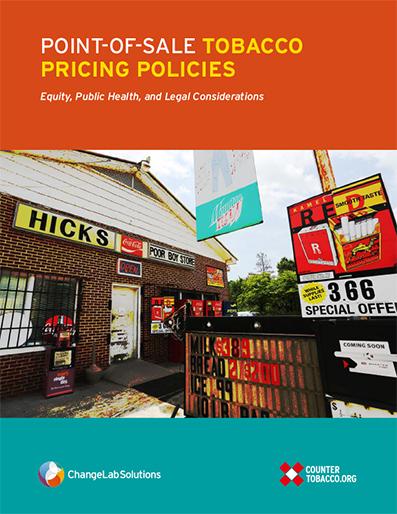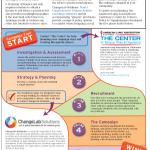Point-of-Sale Tobacco Pricing Policies
Equity, public health & legal considerations
Raising the price of tobacco products is one of the most effective strategies to prevent new users from initiating tobacco use, encourage current tobacco users to quit, and decrease overall tobacco consumption.
Research suggests that for every 10% increase in the price of cigarettes, adult smoking rates decrease by up to 5% and youth smoking decreases by up to 7%. Emerging evidence also suggests that raising the cost of tobacco products may promote health equity by reducing racial and socioeconomic disparities in tobacco use and tobacco-related harm.
Excise taxes remain the gold standard of policies for raising prices of tobacco products. However, many cities and counties do not have the legal authority to enact or increase tobacco taxes, and price discounts aggressively promoted by the tobacco industry can undermine the benefits of such taxes. To maximize public health and equity, state and local governments can enact complementary point-of-sale policies that further increase the cost of tobacco products and counter industry price manipulation.
ChangeLab Solutions and CounterTobacco.org developed this fact sheet and infographic for state and local tobacco control advocates who want to improve community health and equity by implementing point-of-sale pricing policies. The fact sheet details several proven and promising point-of-sale policy approaches:
- Establishing a minimum floor price for all tobacco products
- Requiring minimum pack sizes for little cigars and cigarillos
- Prohibiting the redemption of tobacco coupons, price discounts, and promotions
Funding for these resources was provided by the Centers for Disease Control and Prevention.
CounterTobacco.org, a project of Counter Tools, is a comprehensive resource for local, state, and federal organizations working to counteract tobacco product sales and marketing at the point of sale.




